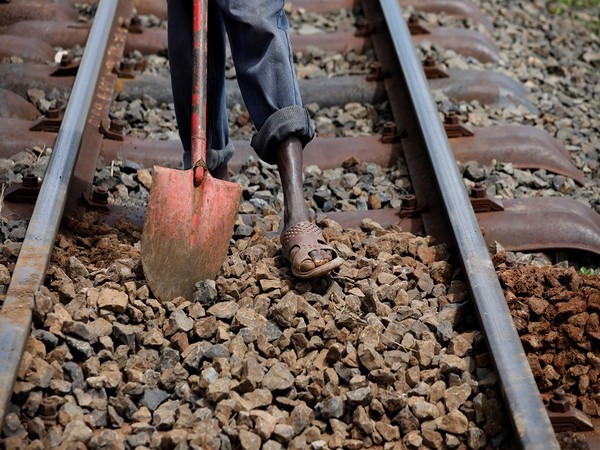
Chinese firm demands billions of shillings from Kenya before handing over railway project

Nairobi [Kenya], August 12 (ANI): A Chinese firm demanded billions of shillings in pending bills that Kenya borrowed to build the modern railway line from Mombasa to Nairobi.
Bonface Otieno, writing in Business Daily said that the Africa Star Railway Operation Company Ltd (Afristar), the Chinese company contracted to run the train service, has listed clearing of its debts as a condition before fully transferring operations of standard gauge railway (SGR) to Kenya in May next year.
Parliament last year revealed that Kenya had not paid Sh 38 billion to Afristar, which is majority-owned by China Road and Bridge Corporation (CRBC) and was contracted in May 2017 to run the passenger and cargo trains on the SGR. “The negotiations between KRC and Afristar commenced in the year 2019 and an agreement has been reached that KRC (Kenya Railways Corporation) takes over obviously with some conditions including clearing of any outstanding payments,” KRC chairman Omudho Awitta told the Business Daily.
The billions of shillings in pending bills add to the Sh 420 billion that Kenya borrowed to build the modern line from Mombasa to Nairobi and for the purchase of engines and coaches. The line, which started operations in 2017, was then linked with another new track, costing USD 1.5 billion (Sh 162.9 billion) and also funded by Chinese loans, to Naivasha, reported Business Daily. Afristar has been managing the ticketing system, landing and offloading of cargo and collection of passenger fares, including non-cash revenues like M-Pesa, under the 2017 agreement.
Ahead of May, Kenya will need to settle the billions of shillings in unpaid bills or restructure the liability into a debt that will be repaid over a longer period, said Otieno. The pressure to settle the Afristar dues comes when the Covid-19 pandemic has hit Kenya’s government revenues and limited access to commercial loan markets, forcing the country to turn to the World Bank and the International Monetary Fund (IMF) for direct budgetary financing.
Apart from the operating fees, Kenya is obligated to honour repayment of the Sh 324 billion it borrowed for the project from the Exim Bank of China in May 2014 and started repaying last year after the expiry of the five-year grace period. Parliament last year recommended that the SGR operating costs be cut by half and the terms of the loan taken to finance its construction renegotiated to ease pressure on taxpayers.
Earlier, Kenya has withdrawn its request for China to extend debt repayment holiday to December in the wake of opposition from Chinese lenders that recently froze disbursements to local projects, reported Business Daily. Chinese lenders, especially Exim Bank, were uncomfortable with Kenya’s push for an extension of the debt service suspension with rich nations, prompting delays in disbursements to projects funded by Chinese financiers.
The dataset — compiled over three years by AidData, a US research lab at the College of William & Mary — comprises 100 Chinese loan contracts with 24 low- and middle-income countries, a number of which are struggling under mounting debt burden amid the economic fallout from the Covid-19 pandemic.
It uncovered several unusual features, including confidentiality clauses that prevent borrowers from revealing the terms of the loans, informal collateral arrangements that benefit Chinese lenders over other creditors and promises to keep the debt out of collective restructurings — dubbed by the authors as “no Paris Club” clauses, reported Business Daily.
The Paris Club is a group of officials from major creditor countries whose role is to find solutions to the payment difficulties experienced by debtor countries. China is not among the 22 countries that are members of the club. Beijing is one of Kenya’s biggest foreign creditors, having lent Sh 758 billion as of April 2021 to build rail lines, roads and other infrastructure projects in the past decade. The country’s rising indebtedness to China is a recipe for economic slavery as China uses its debt diplomacy to entrap nations.
Sri Lanka was forced to hand over control of the Hambantota port project to China for 99 years, after it found itself under massive debt owed to Beijing. This allowed China control over a key port positioned at the doorstep of its regional rival India, and a strategic foothold along a key commercial and military waterway. In exchange for relief, China constructed its first military base in Djibouti. Whereas Angola is replaying multibillion-dollar debt to China with crude oil, creating major problems for its economy.
China has been using the financial tool of debt to gain influence across the world. (ANI)

















POST COMMENTS (1)
ASHOK IYER